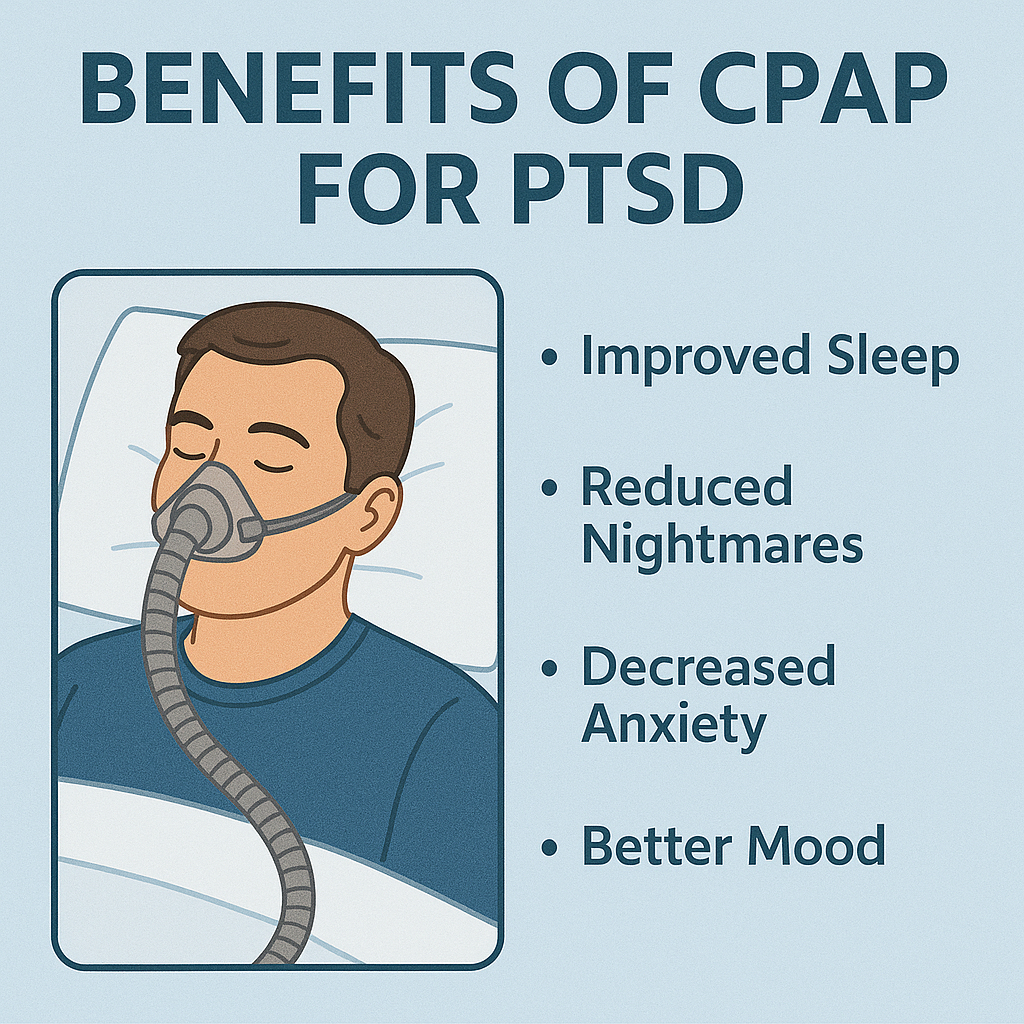
09 Jun Post-Traumatic Stress Disorder and Obstructive Sleep Apnoea: A Destructive Cycle
How Common Is It?
Research shows that between 52% and 69% of people diagnosed with post-traumatic stress disorder (PTSD) also have obstructive sleep apnoea (OSA). Some studies further suggest that 95% of individuals with PTSD could have OSA. This strong association highlights an important but often overlooked part of PTSD care.
How does PTSD interrelate with OSA?
People with PTSD often experience night-time hypervigilance, frequent awakenings and distressing nightmares. However, when combined with symptoms of OSA the impact on physical and mental health is severe.
OSA causes brief pauses in breathing during sleep, this is especially worse during rapid eye movement (REM) sleep. REM sleep is critical for emotional processing and memory consolidation. The breathing disruptions caused by OSA cause the brain to partially “wake up” to restore airflow, further fragmenting sleep.
REM sleep is already disturbed in PTSD. When OSA is added to the mix, it creates a vicious cycle:
- Less REM sleep creates more nightmares and poor emotional regulation
- Apnoea-related awakenings cause symptoms such as, shortness of breath, a racing heart, and anxiety, this further worsens the experience of the nightmare.
- Fragmented sleep causes increased daytime fatigue, irritability, and intensifies mental health symptoms
Breaking the Cycle.
Fortunately, there are effective treatments for OSA that have been found to reduce PTSD symptoms. These treatments include:
- Mandibular advancement splints (oral devices that keep the airway open)
- Continuous Positive Airway Pressure (CPAP) therapy (a machine that delivers steady air pressure while you sleep)
Studies show that treating OSA in people with PTSD can lead to:
- Fewer nightmares
- Improved mood and concentration
- Better energy and reduced anxiety during the day
Treating OSA also reduces the likelihood of physical health complications such as
- Hypertension
- Diabetes
- Stroke
- Heart attack
Takeaway.
If you or someone you know is living with PTSD and experiencing poor sleep, consider consulting your GP to get screened for sleep apnoea.
References:
Lettieri, C. J., Williams, S. G., & Collen, J. F. (2015). OSA syndrome and posttraumatic stress disorder. CHEST Journal, 149(2), 483–490. https://doi.org/10.1378/chest.15-0693
Liempt, S., Westenberg, H., Arends, J., & Vermetten, E. (2011). Obstructive sleep apnea in combat-related posttraumatic stress disorder: a controlled polysomnography study. European Journal of Psychotraumatology, 2(1). https://doi.org/10.3402/ejpt.v2i0.8451
McCall, C. A., & Watson, N. F. (2022). A Narrative Review of the Association between Post-Traumatic Stress Disorder and Obstructive Sleep Apnea. Journal of Clinical Medicine, 11(2), 415. https://doi.org/10.3390/jcm11020415
Orr, J. E., Smales, C., Alexander, T. H., Stepnowsky, C., Pillar, G., Malhotra, A., & Sarmiento, K. F. (2017). Treatment of OSA with CPAP Is Associated with Improvement in PTSD Symptoms among Veterans. Journal of Clinical Sleep Medicine, 13(01), 57–63. https://doi.org/10.5664/jcsm.6388
Vandekerckhove, M., & Wang, Y. (2017). Emotion, emotion regulation and sleep: An intimate relationship. AIMS Neuroscience, 1(1), 1–22. https://doi.org/10.3934/neuroscience.2018.1.1

